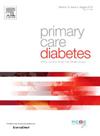Culturally appropriate care for indigenous people with type 2 diabetes mellitus (T2DM)- a scoping review
IF 2.6
4区 医学
Q3 ENDOCRINOLOGY & METABOLISM
引用次数: 0
Abstract
Background
Indigenous populations are disproportionately affected by type 2 diabetes mellitus (T2DM) and associated complications. However, the lack of cultural integration with the current management approach does not suit indigenous communities. Therefore, the aim of this scoping review is to map the existing literature related to culturally appropriate care and to establish the key characteristics of a culturally appropriate care provided to indigenous communities with T2D.
Methods
Electronic databases such as PubMed, CINAHL, Science Direct and Cochrane Library were searched from inception to September 2024. Identified records from database literature searches were imported into Covidence®. Two independent reviewers screened and extracted the data. Studies included Indigenous people with T2D, culturally appropriate care, measurable outcomes, and any design. The research team collectively created a data charting table/form to standardize data collection that included PICO elements and PROGRESS-Plus factors for equity lens. A narrative synthesis was used to summarize the evidence.
Results
Seven studies met our eligibility criteria and were included in this scoping review. Overall, there is clear evidence that a culturally appropriate care results in better physiological outcomes and higher rates of adherence and engagement with a treatment plan and disease management processes. However, future studies need to gather and report on other PROGRESS factors that can cause inequity such as Religion, Education, Socioeconomic status of participants.
Conclusion
The findings of this review emphasise that a culturally appropriate care is crucial in improving health outcomes and engagement among Indigenous people with T2D. However, systemic barriers still exist, highlighting the need for broader structural changes.
土著2型糖尿病(T2DM)患者文化上适当的护理——一项范围综述
背景:土著人口不成比例地受到2型糖尿病(T2DM)及其相关并发症的影响。然而,缺乏与当前管理方法的文化融合并不适合土著社区。因此,本范围审查的目的是绘制与文化适宜护理相关的现有文献,并确定为T2D土著社区提供文化适宜护理的关键特征。方法:检索PubMed、CINAHL、Science Direct、Cochrane Library等自建库至2024年9月的电子数据库。从数据库文献检索中确定的记录被导入到covid®中。两名独立审稿人筛选并提取数据。研究包括土著T2D患者、文化上适当的护理、可测量的结果和任何设计。研究小组共同创建了一个数据图表表/表格,以标准化数据收集,其中包括PICO元素和PROGRESS-Plus因素。叙述综合法被用来总结证据。结果:7项研究符合我们的入选标准,并纳入本范围综述。总的来说,有明确的证据表明,文化上适当的护理可以产生更好的生理结果,并且对治疗计划和疾病管理过程的依从性和参与度更高。然而,未来的研究需要收集和报告其他可能导致不平等的进步因素,如宗教、教育、参与者的社会经济地位。结论:本综述的研究结果强调,文化上适当的护理对于改善土著T2D患者的健康结果和参与至关重要。然而,系统性障碍仍然存在,这突出表明需要进行更广泛的结构性改革。
本文章由计算机程序翻译,如有差异,请以英文原文为准。
求助全文
约1分钟内获得全文
求助全文
来源期刊

Primary Care Diabetes
ENDOCRINOLOGY & METABOLISM-PRIMARY HEALTH CARE
CiteScore
5.00
自引率
3.40%
发文量
134
审稿时长
47 days
期刊介绍:
The journal publishes original research articles and high quality reviews in the fields of clinical care, diabetes education, nutrition, health services, psychosocial research and epidemiology and other areas as far as is relevant for diabetology in a primary-care setting. The purpose of the journal is to encourage interdisciplinary research and discussion between all those who are involved in primary diabetes care on an international level. The Journal also publishes news and articles concerning the policies and activities of Primary Care Diabetes Europe and reflects the society''s aim of improving the care for people with diabetes mellitus within the primary-care setting.
 求助内容:
求助内容: 应助结果提醒方式:
应助结果提醒方式:


